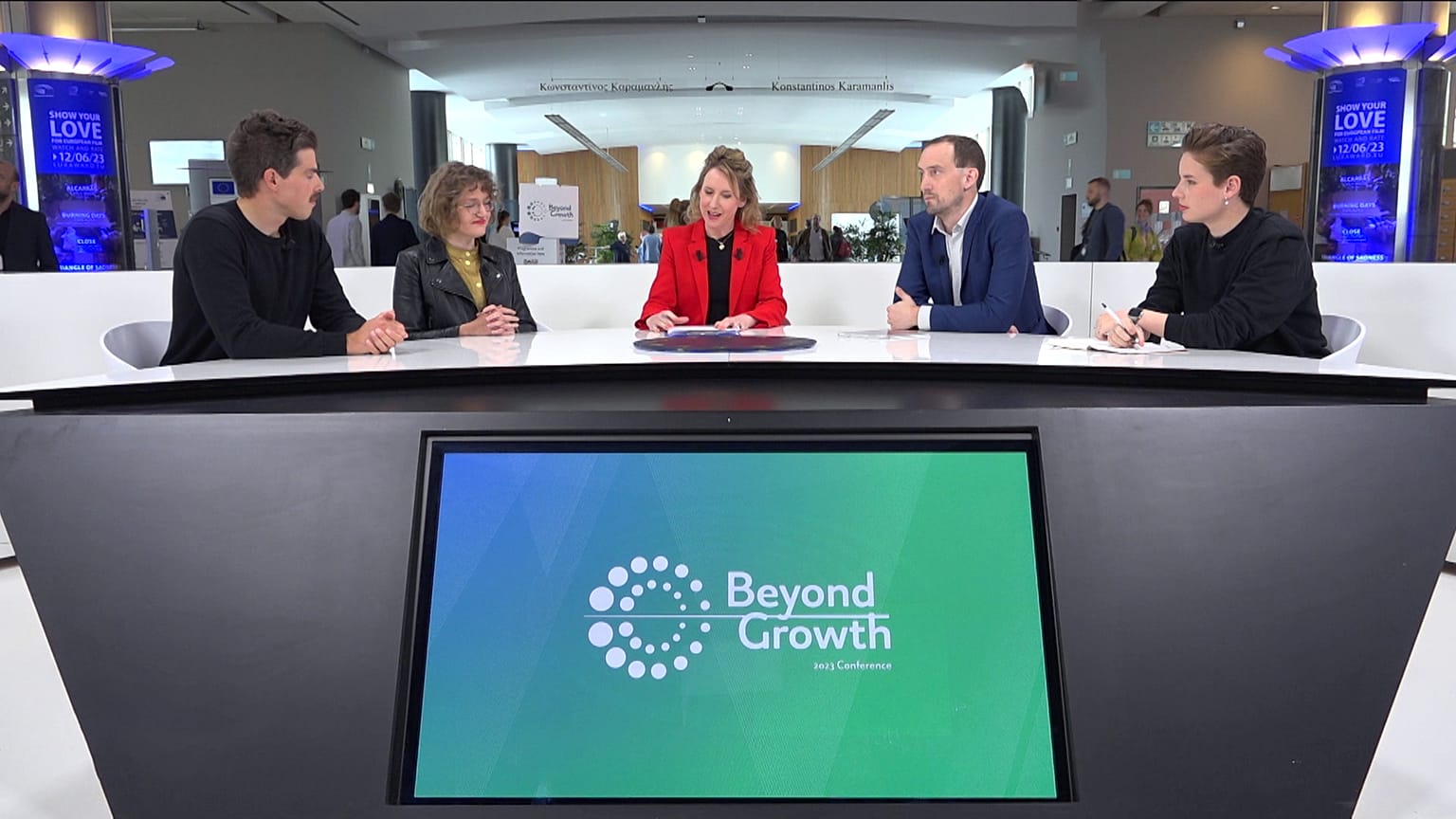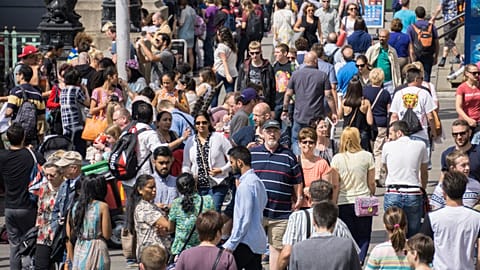For more than a hundred years, economic growth has been a key benchmark for successful societies. But is it the right one? Euronews' final debate on the subject at the Beyond Growth 2023 conference takes a deeper look.
The Beyond Growth 2023 conference is an initiative of 20 MEPs, supported by the President of the European Parliament, Roberta Metsola, despite her political group's stance on the topic, which, generally speaking, is not favourable towards it.
The event, which took place on 15, 16 and 17 May, aimed to discuss and co-create policies for sustainable prosperity in Europe, based on a systemic and transformative approach to economic, social and environmental sustainability and its inclusive governance framework.
At the heart of this approach are a few key ideas, including the idea of wellbeing over economic growth.
It is within these boundaries that the second of two debates took place, with the first, looking to introduce and explore the concept of Beyond Growth, and what it really means for people.
This time round, the four participants were Marie Toussaint, French MEP and vice-president of the Greens/EFA group, Timothée Parrique, French social scientist and writer, Anuna De Wever, Belgian climate activist and the face of the Friday for Futures movement in Belgium, and Ludovic Voet, confederal secretary of the European Trade Union Confederation.
Marie Toussaint : We speak a lot about climate change, but also about biodiversity, about toxic substances or about water. And we really need to act. And what drove this crossing of the planetary boundaries? Well, it's the race for profits, this dogma of growth that is supposed to bring all the happiness in the world. What we've been told for ages is it's supposed to bring us a redistribution of wealth. So, social equality. It's also supposed to bring us to technologies that would save the environment that we are destroying. And it's supposed to solve all our problems. So everyone is just running after growth. Whether it be private companies wanting to chase profits they need as growth, and political leaders that also pretend that chasing this growth is going to solve all the issues that we have. And we can definitely see that this is not working, that we are crossing these planetary boundaries, putting at risk the survival of humanity and of many other species and not solving the issue of social inequality.
Ludovic Voet : The role of trade unions in history has always been to set the human boundaries and to say what the rights of workers are - and I think that we have also, for decades now, the role to set the planetary boundaries and not to oppose the planetary and the human boundaries. That's what we named the 'just transition' in the trade union movement. We need to plan a transition that is possible for people so that they have quality jobs, that they have social protection, that this works. And of course, this goes against the logic of rapid profit. And that's what we have to change in society.
Anuna De Wever : I think there is a big generational thing here and that a lot of the young people that I've met at this conference and myself - I'm 21 years old - we're not actually obsessed with growth. Like, we are just looking at this concept now with scientists, hard science with social sciences, and we're understanding that it's actually done much more harm than good. So for our generation, growth is something that we are actually actively fighting. And this whole paradigm of growth and this obsession with growth in the European Union is not something that we've been a part of yet. We're obsessed with wellbeing, I think, and equality and understanding that if we want to live in a society and in a world where equality is a priority, I think that degrowth is a very fundamental part of that.
Timothée Parrique : Well, for a few decades, we have believed that somehow we could keep growing and polluting less at the same time, we call it 'green growth'. We talked of decoupling the two, but now, science has shown us with hundreds of studies that actually decoupling is not happening. So right now we have this obsession with GDP, which is a 100-year-old indicator, which is a bit strange because it's completely decorrelated to well-being in high-income countries, but we're also facing the unsustainability of the pursuit of growth. So degrowth basically is a plan B. We've tried green growth. That's not going to work now. I think that should be acknowledged as a fact as a result of the latest IPCC report. And so we do need to organise a democratically planned downscaling of production and consumption in high-income countries and organise it so that it can be done in a way that is both equitable and convivial.
Watch the full debate in the video player above


















